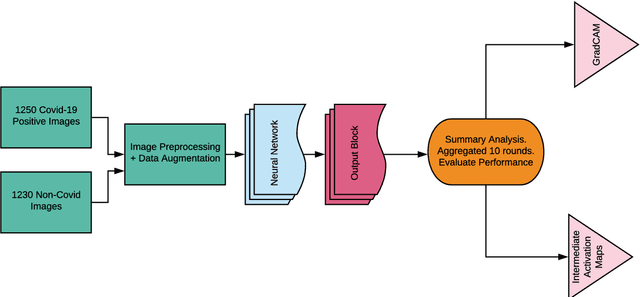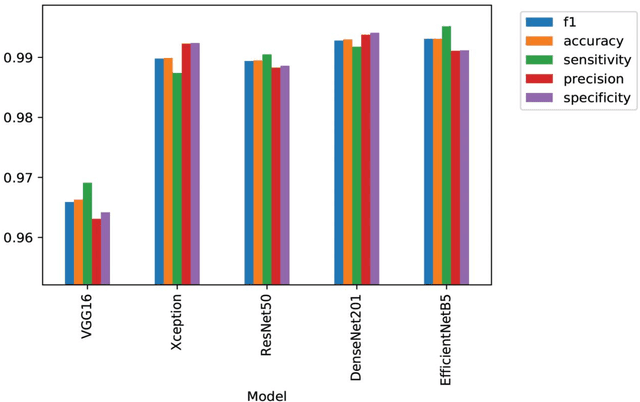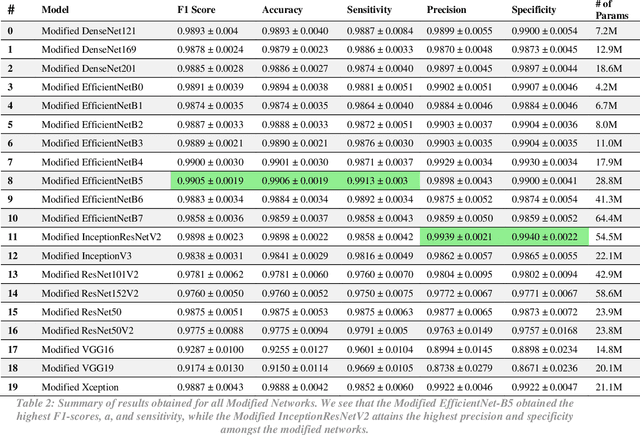Efficient and Visualizable Convolutional Neural Networks for COVID-19 Classification Using Chest CT
Paper and Code
Dec 22, 2020



The novel 2019 coronavirus disease (COVID-19) has infected over 65 million people worldwide as of December 4, 2020, pushing the world to the brink of social and economic collapse. With cases rising rapidly, deep learning has emerged as a promising diagnosis technique. However, identifying the most accurate models to characterize COVID-19 patients is challenging because comparing results obtained with different types of data and acquisition processes is non-trivial. In this paper, we evaluated and compared 40 different convolutional neural network architectures for COVID-19 diagnosis, serving as the first to consider the EfficientNet family for COVID-19 diagnosis. EfficientNet-B5 is identified as the best model with an accuracy of 0.9931+/-0.0021, F1 score of 0.9931+/-0.0020, sensitivity of 0.9952+/-0.0020, and specificity of 0.9912+/-0.0048. Intermediate activation maps and Gradient-weighted Class Activation Mappings offer human-interpretable evidence of the model's perception of ground-class opacities and consolidations, hinting towards a promising use-case of artificial intelligence-assisted radiology tools.
 Add to Chrome
Add to Chrome Add to Firefox
Add to Firefox Add to Edge
Add to Edge